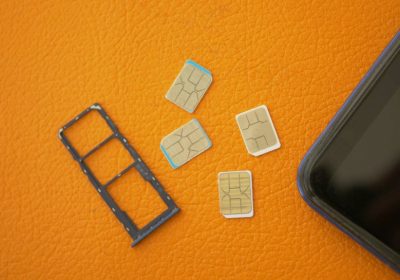
Leverage mobile ID verification for KYC / AML compliance and global growth: By Barley Laing
With around five billion people in the world having access to a smartphone, out of a global population of just over eight billion, a mobile number is quickly becoming a vital part of the identity verification process in KYC and AML compliance, and in the
fight against fraud.
Traditionally, matching a name to an address has been and continues to be an integral part of the ID verification process when onboarding new customers. However, it’s clear that mobile ID verification – matching a name to a mobile number – is something that
needs to be embraced. Particularly as the proliferation of smartphones rapidly grows, with 6.1 billion people projected to have access to such a device by 2029, while four billion people worldwide have a recognised postal address.
Mobile ID verification is becoming a very valuable component of the identity verification process because unlike traditional methods that depend on semi-static data, mobile verification uses real-time data from mobile network operators (MNOs) to authenticate
an individual’s identity with a high degree of accuracy.
When it comes to SIM registration individuals are required to register their name, address, date of birth and, in some cases, provide a government-issued document or national ID. This means mobile numbers are increasingly becoming primary identifiers and
digital identities. In the EU and parts of Asia, such as India, a valid mobile number is not only necessary for basic communications but also for critical activities such as opening a bank account, registering for online services, or renting property.
It’s possible to obtain easy to integrate API software that matches the name and mobile number provided to the name and number on the SIM, for additional reassurance. This is especially important if an existing customer is looking to change their mobile
number, to help prevent SIM swap.
Furthermore, mobile ID verification can be more cost effective compared to identity verification performed against regulated data sources, such as credit bureaus and government bodies.
In summary, mobile ID verification delivers a reliable and efficient way to authenticate users, prevent fraud, and comply with regulatory requirements.
Verify and match multiple customer contact data points
On their own each piece of contact data is just one part the identity verification jigsaw. Therefore, to enhance accuracy and to make sure that the prospective customer is who they say they are, it’s always best practice for KYC and AML to additionally cross
reference a name with a physical address, landline telephone or email, where possible. This is vital with fraud in the increase.
Sourcing an electronic ID verification (eIDV) service is a good option. Ideally one with access to a global dataset of billions of records containing data from trusted country specific reference sources, including credit agencies, government agencies, utility
companies, as well as mobile network operators.
Track IP address activity
Don’t forget the importance of the IP address as part of the identity verification process. Find out if the IP address of the person planning to obtain a loan or open a bank account matches or is near the verified physical address they have provided. For
instance, if the person is trying to source a loan in a different country from their registered address, carrying out an additional verification procedure would be a good idea prior it being approved.
Mobile ID verification is going to play an increasingly vital role in the ID verification process, particularly for those financial institutions looking to grow into new markets, as the proliferation of smartphones increases. However, for best practice identity
verification, and effective KYC and AML to help prevent fraud, financial institutions should, along with mobile phone number data, cross reference other sources of contact data to ensure the potential customer is who they claim to be.






No Comment! Be the first one.